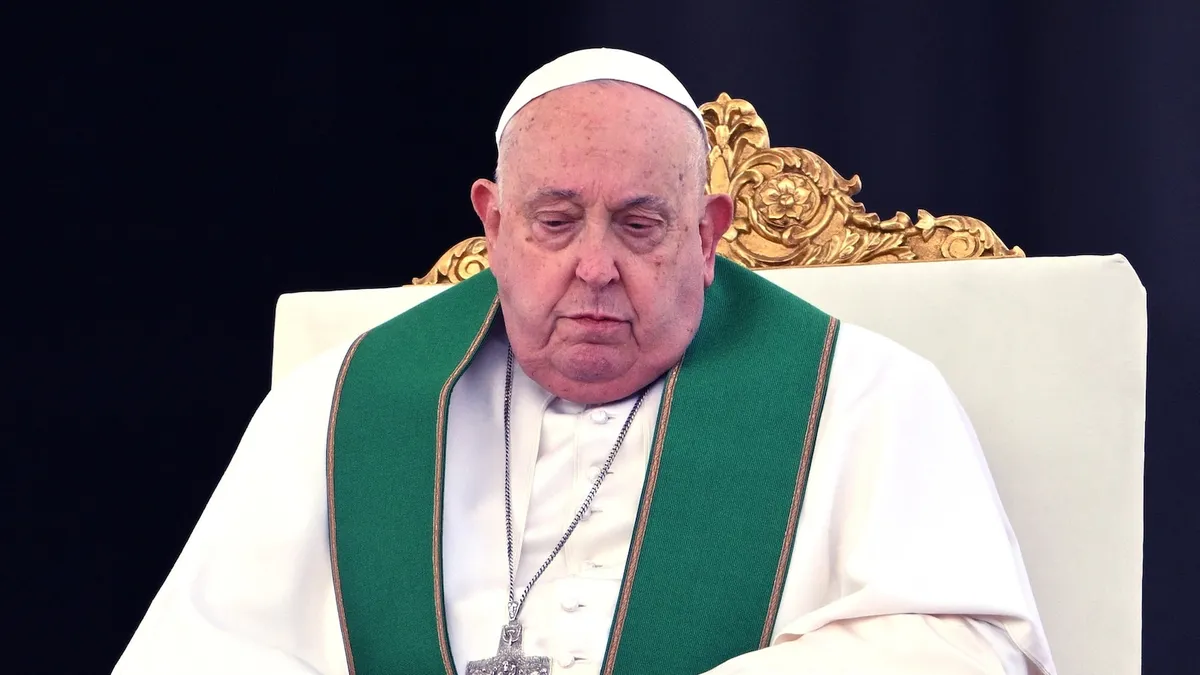
Pope Francis experienced a significant health setback on Saturday morning as he suffered a prolonged asthmatic respiratory crisis, requiring immediate medical intervention, according to a statement from the Vatican. Doctors had to administer oxygen to assist the Pope in maintaining adequate oxygen levels.
The Vatican has confirmed that Pope Francis's condition remains critical. Blood tests conducted today have revealed plateletopenia, which is associated with anemia. This condition necessitated the administration of hemotransfusions as part of his treatment. Despite these challenges, the Holy Father remains alert and spent the day seated in an armchair, although he is experiencing more pain than he did the previous day.
An asthmatic respiratory crisis indicates that Pope Francis is struggling to maintain sufficient oxygen levels independently. Medical experts explain that such a crisis can severely compromise breathing efficiency.
Plateletopenia, also known as thrombocytopenia, means that the Pope has a low platelet count. These cells are crucial for blood clotting. Low platelet levels can result from infections, medication side effects, or issues with normal platelet production, posing additional health risks.
Pope Francis has been hospitalized since February 14, following a bout with bronchitis. Earlier this week, he was diagnosed with pneumonia, further complicating his health status. Despite these challenges, the Vatican described the Pope as being in good spirits earlier in the week.
In light of the ongoing health concerns, the Vatican announced prior to Saturday's update that Pope Francis would not lead Sunday mass this week, as he continues to focus on recovery. The situation remains under close observation, with continuous updates expected as his condition evolves.
Contributions to this report were made by ABC News' Ivan Pereira and Youri Benadjaoud.